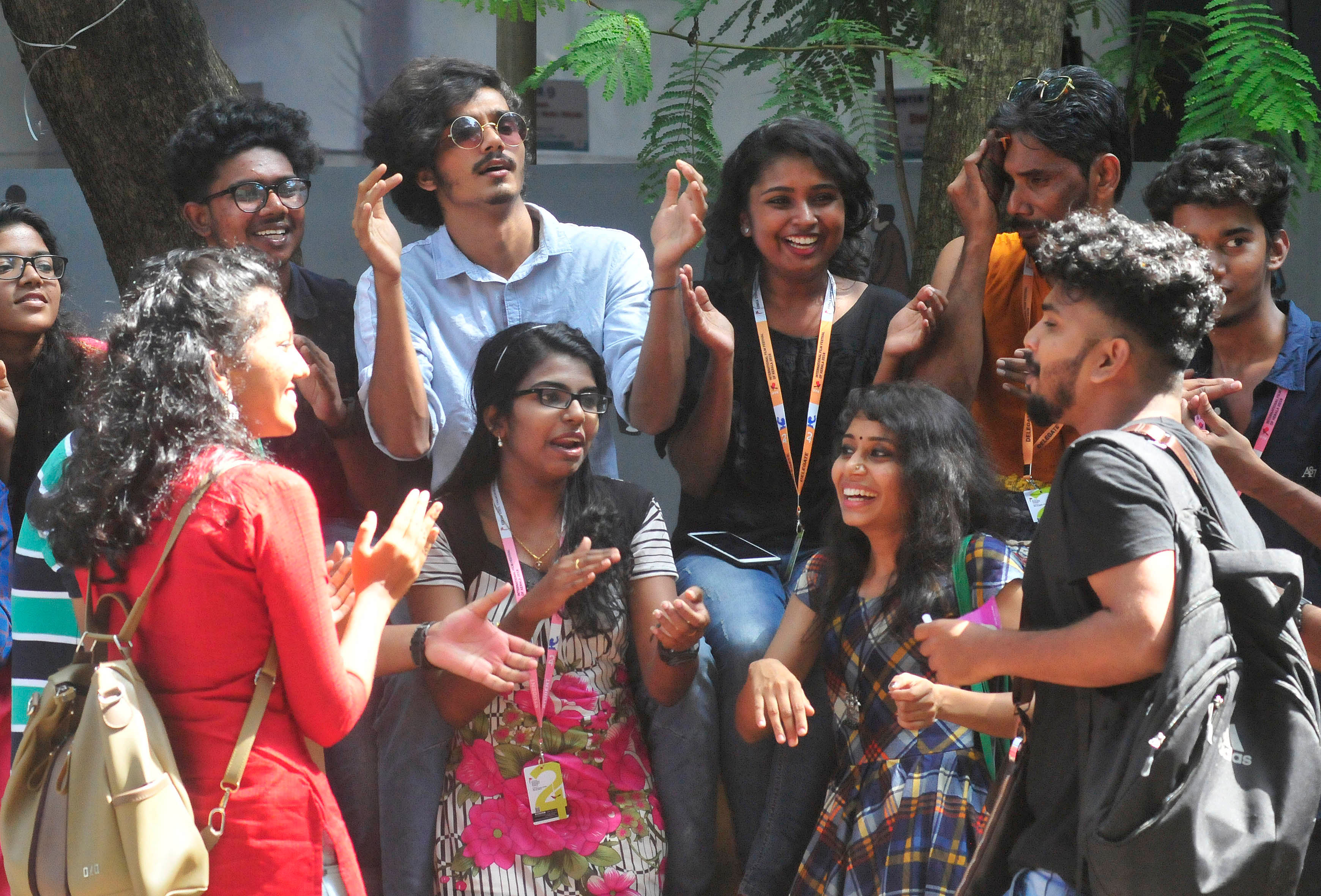
Key sociopolitical topics like Kashmir and the Citizen (Amendment) Bill echoed throughout the 24th International Film Festival of Kerala. The festival opened on December 6 and concluded on December 13.
The annual event at Thiruvananthapuram witnessed candle-light demonstrations to express solidarity with the people of Kashmir, and a symbolic torching of the just-passed citizenship law.
Among the 186-odd films screened, many like ‘No Fathers in Kashmir’ and ‘Parasite’ had to be re-screened on popular demand.
The festival coincided with the passing of the CAB in Parliament. Direct and indirect references were made to the proposal for a Uniform Civil Code.
The discussions were kicked off by Kerala Chief Minister Pinarayi Vijayan in his inaugural address. “The nation’s cultural pluralism is being confronted by threats like ‘one nation, one language’. Cinema, being a strong and popular medium, could influence the political thought process of the people,” he said.
Ashvin Kumar’s ‘No Fathers in Kashmir’ evoked a big response. Congress MP Shashi Tharoor said the experience of ordinary Kashmiris was shown in a deeply sympathetic and profoundly moving manner in the film.
The filmmaker, however, lamented that those making films on Kashmir were being dubbed anti-national by the authorities.
“Right from the initial stages in Kashmir, we were considered anti-national. Kashmir, being a sensitive issue, posed a serious challenge in film making,” Ashvin said, adding that his objective was to bring to light the untold realities of Kashmir.
The day the Lok Sabha passed the Citizen Amendment Bill, it was burnt symbolically at the festival, with protesters opposing the mixing of citizenship with religion.
CPM Politburo member M A Baby, who had turned up to watch films, also joined the protest.
Young filmmaker Shilpa Krishnan Shukla said even if citizens were removed from the nation, the nation could not be removed from them.
“Those living in the country and outside have love for the nation in their hearts,” she said.
A native of Kerala now settled in Singapore, her ‘Kathaah@8’ is an anthology of eight stories in eight languages. It was screened at the IFFK.
“Everyone has a right over the earth,” said Nishad Yusuf, editor of Malayalam film ‘Unda’. Kislay, young director of the Hindi film ‘Aise Hee’ (Just like that), said he was making films to show what was happening in the country.
‘God Exists, Her Name is Petrunya’, a Macedonian film screened at the festival, shows men getting angry at a woman who participates in a ritual. It resonated with an audience aware of the developments in Sabarimala, the hill shrine in Kerala that bars entry to women in the menstruating age. The state has witnessed strong protests against a court order that sought to allow women inside the shrine.
Korean Oscar entry ‘Parasite’, which won the Palme d’Or at the Cannes film festival, stole the show, and had to be screened a third time in response. The black comedy thriller was a smash hit at the festival.